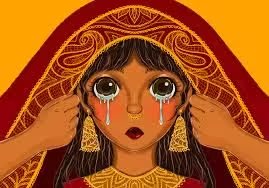The Islamabad High Court granted permission to a 15-year-old girl to stay with her husband even after reiterating child marriage below 18 years!
The Islamabad High Court recently issued a judgment which has triggered extensive debates across Pakistan. The court granted permission to a 15-year-old girl who had married of her own accord to stay with her husband, while strongly upholding that child marriage below the age of 18 years is an offense punishable under Pakistan’s law.
This sensitive and contentious decision impacts some of the most pivotal intersections of law, religion, and social practice in the nation.
The Case at a Glance
The girl’s official marriage certificate indicated she was approximately 18 years old, but documents from the National Database and Registration Authority (NADRA) verified her actual age to be 15 years. Even though there was this legal inconsistency, the girl did present herself before the court and stated unequivocally that she did not want to be sent back to her parents. Rather, she wished to remain with her husband.
The court recognized her personal choice but also reasserted that the law of the land doesn’t allow marriages below the age of 18, deeming them as criminal offenses.
Sharia vs. State Law: The Legal Dilemma
One of the key intricacies of this case is interpreting Sharia. According to Islamic principles, a marriage shall not be voided if there is consent and physical maturity (puberty). Pakistan statutory law, however, has established that the minimum age limit to enter into marriage is 18 years.
This dichotomy gives rise to a legal gray area in which individual autonomy, religious tenets, and the protective laws of the state conflict. The Islamabad High Court ruling is a manifestation of this same tension.
Court’s Directives for Future Safeguards
In permitting the girl to stay with her husband, the High Court made a number of directives with the view to plugging the loopholes that facilitate child marriages:
- Marriage Registrars: Told not to solemnize marriages involving anyone under 18.
- Role of NADRA: Intensify verification systems to make sure no marriage certificate is issued without age verification.
- Public Awareness Campaigns: The government was urged to introduce campaigns emphasizing the adverse effects of child marriage on health, education, and social well-being.
These instructions represent a step towards more preventive actions, while the current case remains a precedent that will generate debate for years to come.
A Human Story Behind the Headlines
While legal complexities top the talk, at the core of it is a young girl making decisions that will determine her life. For most people, this decision emphasizes the vulnerability of children torn between cultural norms, family influence, and the state’s responsibility to protect.
The insistence of the girl to cohabitate with her husband exemplifies her agency, but her age highlights the imperative necessity of protecting young people from long-term effects of early marriages.
The Larger Debate on Child Marriage
Child marriage has long been a pervasive social issue in Pakistan. Even with legislation enacted, cultural norms, poverty, and ignorance remain strong drivers of such marriages. This case revives the national debate: Is religious interpretation superior to statutory law, or must protecting children remain a non-negotiable?
The Islamabad High Court’s decision shows that the way forward is not straightforward or simplistic. It involves juggling respect for religion, protection of human rights, and enforcing clear legal protections.
A Turning Point for Child Marriage Discourse
The Islamabad High Court’s decision is not merely a legal one—it is a reflection of the country’s efforts to balance tradition, religion, and contemporary law. Though the right to live with her selected partner has been given to the girl, the ruling confirms that underage marriages are still illegal.
As Pakistan progresses, the focus will have to be on establishing systems that ensure the safety of children, spreading awareness against harmful practices, and achieving a lasting harmony between law and religion.
Stay tuned to Pakistan Updates for more news and updates.




